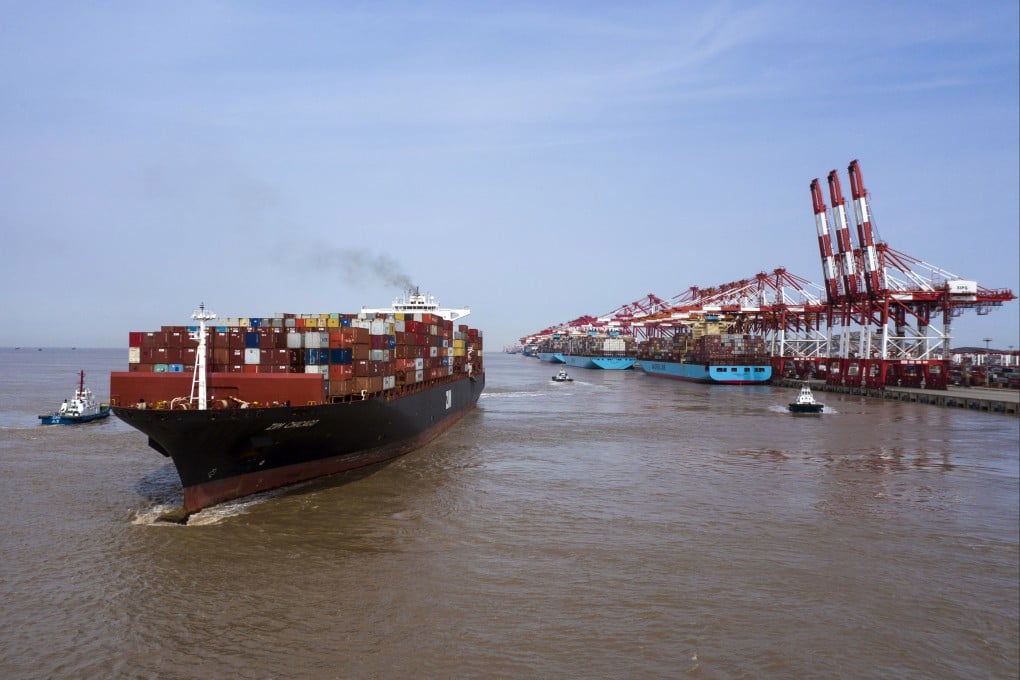Malaysia says ‘can handle’ losses from Israeli cargo ban, as 4,000 containers wait at Port Klang
- Experts say PM Anwar Ibrahim’s gambit is expected to bolster domestic support for his administration given Malaysia’s historical backing of the Palestinian cause
- Zim will be given ‘some time’ to make its own arrangements for the 4,000 containers stranded at Port Klang, with its cargo destined for various locations

Malaysia will have to swallow the loss of trade after banning Israeli shipping giant Zim from operating in the country over the nation’s war on Gaza, Prime Minister Anwar Ibrahim has said, following his administration’s order for the firm to swiftly remove 4,000 containers stranded in Malaysian ports.
The Malaysian prime minister has been among the world’s most outspoken leaders to condemn Israel’s bombardment of Gaza, which has killed 20,000 Palestinians so far, earning applause at home in a country with a long, vocal history of support for the Palestinian cause – as well as Hamas.
On Wednesday, Anwar said vessels operated by Zim and any ships bearing the Israeli flag would not be allowed to dock or unload cargo at any Malaysian port. Ships headed for Israel will also be barred from loading any cargo in Malaysia.

Anwar later said the government was aware of the risks of losing out on trade from the ban, but added the country “can handle” any shortfall.
“True, we may lose a bit with ships not coming, but this is our principle of humanity,” he said on Thursday at a dialogue with students at a university in Perak state.
Anwar’s gambit is expected to bolster domestic support for his administration given Malaysia’s historical backing of the Palestinian cause, according to experts.
“Even if there is any commercial impact to Malaysia, it’s a small price to pay for the potential return in political capital domestically,” Adib Zalkapli, a Malaysia director at political risk consultancy BowerGroupAsia, told This Week in Asia.
Transport Minister Anthony Loke said Zim would need to make its own arrangements with other shipping lines to move 4,000 containers which are mostly stranded in Port Klang, the country’s largest port.